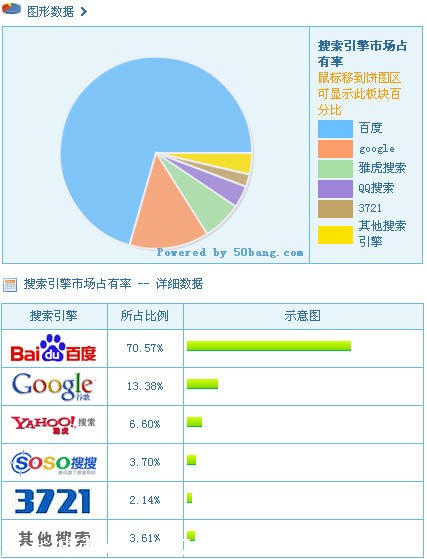Society
- Details
- By David Cao
- Hits: 782
The city's ban on smoking in public areas will be enforced beginning March 1, a draft amendment to the anti-smoking law approved by the city's top legislature showed on Thursday.
Following months of debate and repeated revisions by the Shanghai People's Congress, the Shanghai Public Places Smoking Control Law now clarifies and expands its scope. The new law also imposes fines on establishments that fail to obey the restrictions.
Proponents say the law will better protect its citizens' lives and clean the environment.
The revisions to the law make the smoking ban more specific, giving a list of places affected. Smoking will be prohibited at places including kindergartens, schools, hospitals, stadiums, public service places, shopping malls, libraries, theaters and museums.
Entertainment venues, public areas of hotels, airports and train/port stations should ban smoking indoors and provide a separate smoking area. The law stipulates that all separate smoking areas or rooms should be ventilated. Public places must also have prominent signs indicating that smoking is prohibited.
Government statistics show that 30.2 percent of residents in Shanghai smoke. The national rate is 35.8 percent.
Lawmakers attribute a lack of strict rules and lax management to a large number of smokers.
The existing smoking control law was carried out in 1994, which was mainly enforced in the medical departments.
Under the new law, places that fail to ban smoking could be penalized 2,000 to 10,000 yuan. In the case of a serious violation, they could be fined 10,000 to 30,000 yuan. Individuals who smoke in non-smoking areas will be fined 50 to 200 yuan if they will not agree to snuff out the cigarette.
"The city has been devoted to a healthy environment, and there is an urgent need for legislation for a definable smoking control law. It is also the collective suggestions of many legislators and health experts," Ding Wei, vice-director of the Law Commission of the Shanghai People's Congress, said yesterday.
- Details
- By David Cao
- Hits: 740

Third Party data 2008
The most searched for term among mainland Chinese users of Google is "Baidu" – Google's largest rival in China, according to a report recently released by Google itself, the Beijing Times reported yesterday.
Xie Wen, an Internet expert said the fact that Google released the report showed its generosity, and revealed both Baidu's strong competitiveness and Google's own flaws in China.
Google released the “Hottest Words by Chinese Mainland, Hong Kong, Macao and Taiwan 2009” on Wednesday.
- Details
- By David Cao
- Hits: 763

The lingering controversy surrounding the death of a young woman who committed suicide last month has brought into focus the alleged lack of sensitivity to the problems of out-of-town students in Shanghai's many colleges.
Yang Yuanyuan, a 30-year-old postgraduate student at Shanghai Maritime University, was found dead last month in the bathroom of the dormitory where she lived. Police said Yang used two towels to hang herself on a sink faucet in the toilet on Nov 26.
An unnamed letter posted on an online forum linking her death to her university has stirred protests from many people who blame the rigid rules of the university for trying to kick Yang's mother out of the residence - which it claimed pushed her to end her life.
Read more: Chinese postgraduate student Suicide in university by poverty
- Details
- By David Cao
- Hits: 678
Police in northwest China's Xinjiang Uygur Autonomous Region have arrested 94 people listed as wanted after the July 5 riot in the regional capital, Urumqi.
They were among 382 people seized by Xinjiang police in a month-long "strike hard" campaign that started in early November, said a spokesman with the regional public security department.
He said he could give no details of what charges those arrested would face.
He said the campaign, which broke up 66 criminal rings, was aimed at enhancing social stability and dispelling public concern over security in the region after the July 5 riot.
The riot left 197 people, mostly Han Chinese, dead and 1,600 injured.
Volunteers have since helped maintain stability at communities and worked closely with public security authorities to prevent and stop crimes.
Police in Xinjiang have also intensified efforts to combat trafficking of women and children, illegal manufacturing and trading of explosives, unauthorized gun ownership and counterfeit cash, the spokesman said.
Fourteen people have been sentenced to death so far for murder and other crimes committed during the riot.
- Details
- By David Cao
- Hits: 667
A panel of 42 experts in the fields of hygiene, agriculture, food and nutrition was set up Tuesday by the Chinese government to conduct risk assessment on food safety.
According to China's Food Safety Law, the expert committee shoulders the responsibilities of formulating risk monitoring and assessment schemes, establishing technical rules and explaining assessment result.
Minister of Health Chen Zhu said that over the next two years, the ministry would establish a national monitoring network for food contaminants and food-borne illness, and begin a national dietary research.
China's Ministry of Health has conducted risk assessment on food contaminants since the 1970s. After the country's accession to the World Trade Organization (WTO), it has intensified risk assessment on microbiology, chemical contaminants, additives and fortifier in food.
Food safety issues have become particularly sensitive in China since September last year after melamine-contaminated dairy products were found to have left at least six infants dead and sickened about 300,000 others.
More Articles …
Page 189 of 255